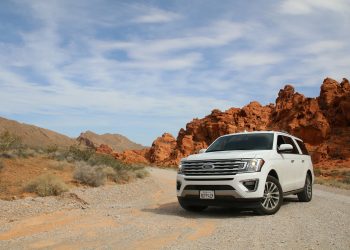Rural areas, characterized by their scenic landscapes and serene environment, also come with their own challenges, especially in the automobile market. Buying or selling cars in these regions can be a demanding task, but with the advent of online platforms, many of these challenges are being mitigated.
Challenges of Car Sales in Rural Areas:
- Limited Selection: One of the most significant challenges buyers face in rural areas is the limited selection of vehicles. Unlike urban areas with multiple dealerships representing various brands, rural areas often have fewer dealers, leading to a restricted range of models and makes to choose from.
- Lower Demand: Sellers, on the other hand, may struggle due to the reduced demand in these areas. With fewer potential buyers, selling a car might take much longer than in a bustling city.
- Price Disparities: Prices can be less consistent due to the limited market and competition. Buyers might pay more, while sellers might have to settle for less than their car’s actual worth.
- Logistical Challenges: Rural locations can sometimes be hours away from the nearest dealership or buyer. This distance can make test drives, vehicle inspections, and finalizing transactions cumbersome.
- Limited Services: Services like vehicle inspections, repairs, and maintenance might be sparse and far between in rural areas. This can make it challenging for a seller to prepare their car for sale or for a buyer to maintain it post-purchase.
The Online Solution:
The rise of online car selling platforms has revolutionized the way people buy and sell vehicles, especially in rural areas. Here’s how:
- Wider Reach: Online platforms can reach a national audience. A seller in a remote rural area can list their car and get inquiries from hundreds of miles away. This broad reach increases the chances of a sale.
- Diverse Selection: For buyers, online platforms offer a plethora of choices. They can browse cars from different regions, ensuring they find the make, model, and price that fits their needs without being restricted by their immediate locale.
- Price Transparency: Online platforms often come with pricing tools that provide data-driven insights into a car’s market value. This transparency ensures that both buyers and sellers get a fair deal.
- Convenience: Online listings can be created from the comfort of one’s home. Sellers can upload photos, details, and even get online valuations. Buyers can browse, compare, and contact sellers without requiring long drives to multiple dealerships.
- Logistical Support: Some online platforms provide logistical solutions like transporting the purchased car to the buyer’s location, further reducing distance challenges.
- Trust and Verification: Many online platforms now offer verification services. They might inspect the car before listing, ensuring that the details provided are accurate. This verification builds trust among buyers and ensures sellers can highlight their car’s best features.
- Financing and Paperwork: Traditionally, the paperwork involved in car sales, especially in rural areas with limited resources, can be daunting. Online platforms often streamline this process, with some even offering financing options for buyers, making the transaction smoother.
While rural areas offer tranquility and a close-knit community feel, they present unique challenges in the automobile market. The traditional method of buying and selling cars in these areas can be fraught with limitations. However, the digital age, with its online car selling platforms, has ushered in a new era of convenience, transparency, and reach. Going online might be the best route for the rural car enthusiast or the seller looking for the best deal.









